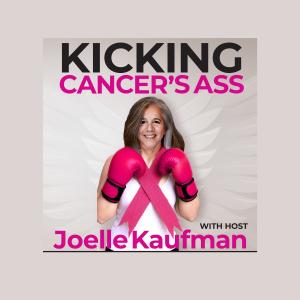Kicking Cancer's Ass

Episode 08: The $8000 lesson: Why your worst insurance decision might save your life
When a marathoner chose the cheapest health insurance because she “never planned to use it,” she had no idea cancer would teach her that the healthcare bureaucracy is the hardest race of all.
This runner’s journey from healthy athlete to cancer navigator reveals the shocking financial realities patients face: surprise $416 bills, geographic prescription restrictions, PT session limits despite multiple surgeries, and insurance systems designed to confuse rather than help. Her story illuminates the hidden costs and bureaucratic nightmares that catch even informed patients off guard.
But this isn’t just a story of obstacles—it’s a masterclass in resilience and strategic thinking. She learned to time surgeries to maximize insurance benefits, kept running half-marathons during chemo, and discovered that growing her own food became a powerful form of healing and hope.
In this episode, you’ll discover:
- How her “worst” insurance plan became her lifesaver during cancer treatment
- The strategic approach she used to minimize out-of-pocket costs in year two
- Why she ran 120 miles in January after radiation (and what happened next)
- How AI helped her communicate more effectively with doctors
- The community support that surprised her most when she needed help
Her hard-won wisdom includes practical advice on: • Decoding insurance terminology before you need it • Fighting surprise medical bills and denied claims • When to seek second opinions from major cancer centers • Building support systems when you’re terrible at asking for help • Using case managers and patient advocates effectively
Host Joelle Kaufman, a 43-year breast cancer survivor and author of “Crushing the Cancer Curveball,” guides this conversation that every person—whether facing cancer or not—needs to hear. Because in America, healthcare financial literacy can literally be a matter of life and death.
This episode is for anyone who wants to understand how to navigate healthcare as an empowered patient, not a victim of the system.






 Visit Podcast Website
Visit Podcast Website RSS Podcast Feed
RSS Podcast Feed Subscribe
Subscribe
 Add to MyCast
Add to MyCast